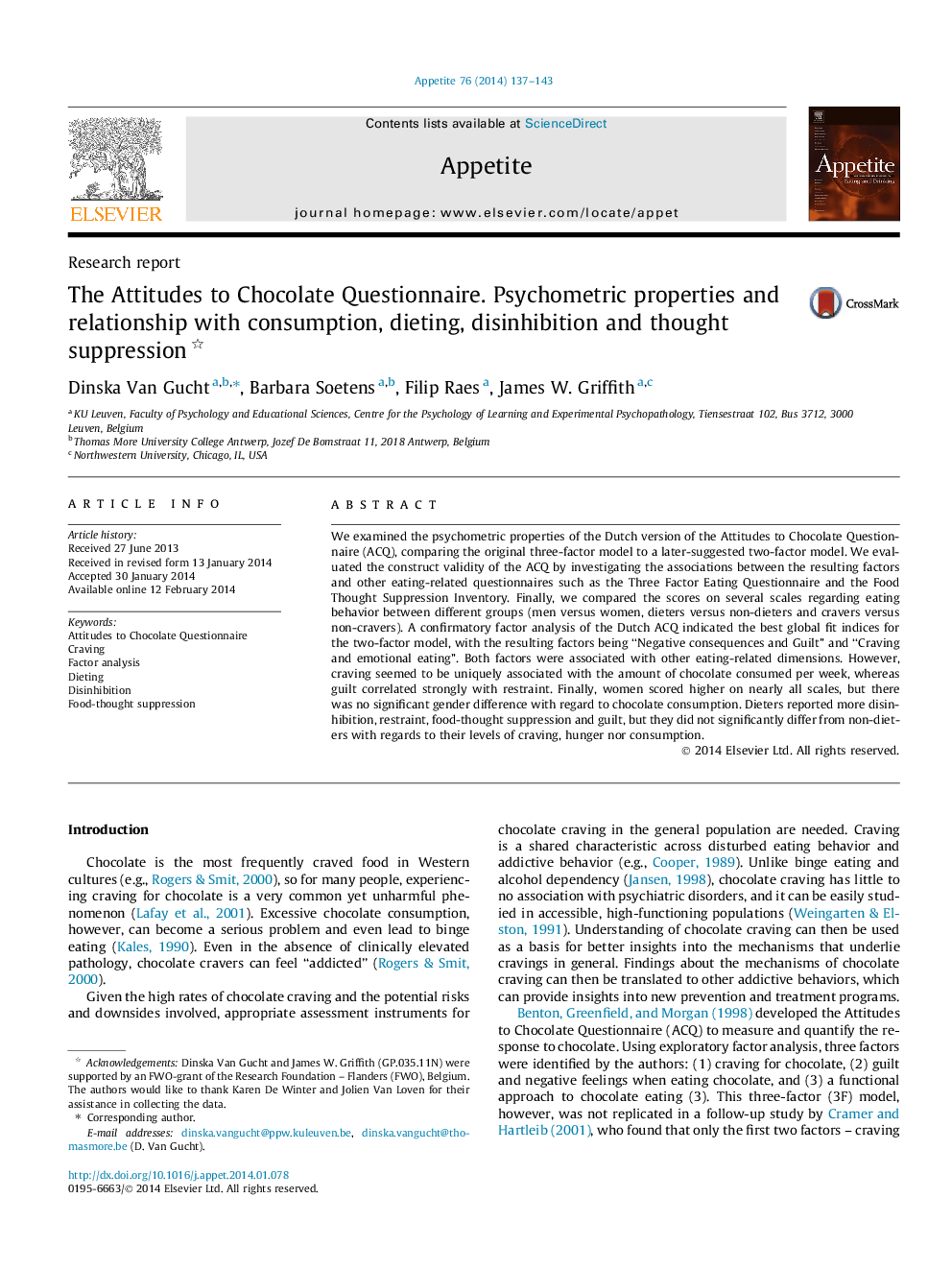| کد مقاله | کد نشریه | سال انتشار | مقاله انگلیسی | نسخه تمام متن |
|---|---|---|---|---|
| 939505 | 1475404 | 2014 | 7 صفحه PDF | دانلود رایگان |
• The Dutch version of the Attitudes to Chocolate Questionnaire (ACQ) was examined.
• CFA of the Dutch ACQ yielded a two-factor model, with craving and guilt as factors.
• Craving is uniquely associated with the amount of chocolate consumed per week.
• Guilt correlated strongly with restraint.
We examined the psychometric properties of the Dutch version of the Attitudes to Chocolate Questionnaire (ACQ), comparing the original three-factor model to a later-suggested two-factor model. We evaluated the construct validity of the ACQ by investigating the associations between the resulting factors and other eating-related questionnaires such as the Three Factor Eating Questionnaire and the Food Thought Suppression Inventory. Finally, we compared the scores on several scales regarding eating behavior between different groups (men versus women, dieters versus non-dieters and cravers versus non-cravers). A confirmatory factor analysis of the Dutch ACQ indicated the best global fit indices for the two-factor model, with the resulting factors being “Negative consequences and Guilt” and “Craving and emotional eating”. Both factors were associated with other eating-related dimensions. However, craving seemed to be uniquely associated with the amount of chocolate consumed per week, whereas guilt correlated strongly with restraint. Finally, women scored higher on nearly all scales, but there was no significant gender difference with regard to chocolate consumption. Dieters reported more disinhibition, restraint, food-thought suppression and guilt, but they did not significantly differ from non-dieters with regards to their levels of craving, hunger nor consumption.
Journal: Appetite - Volume 76, 1 May 2014, Pages 137–143
